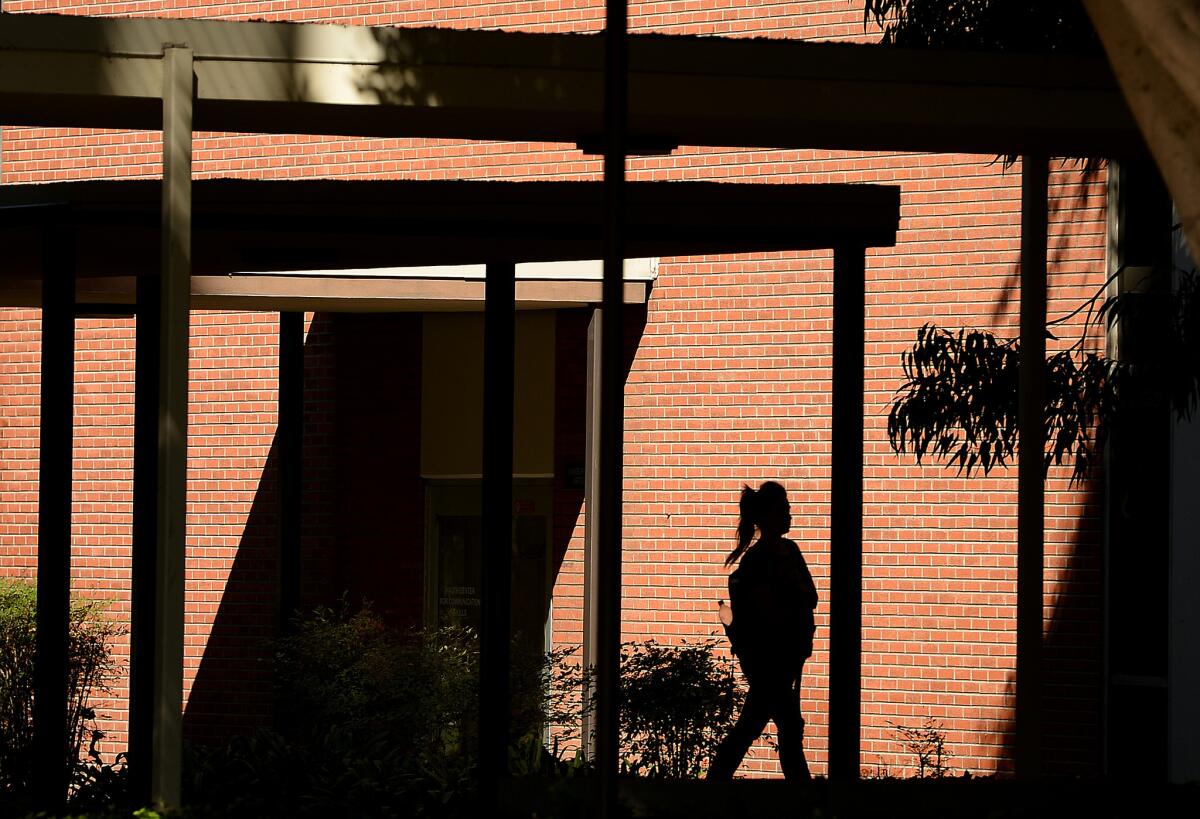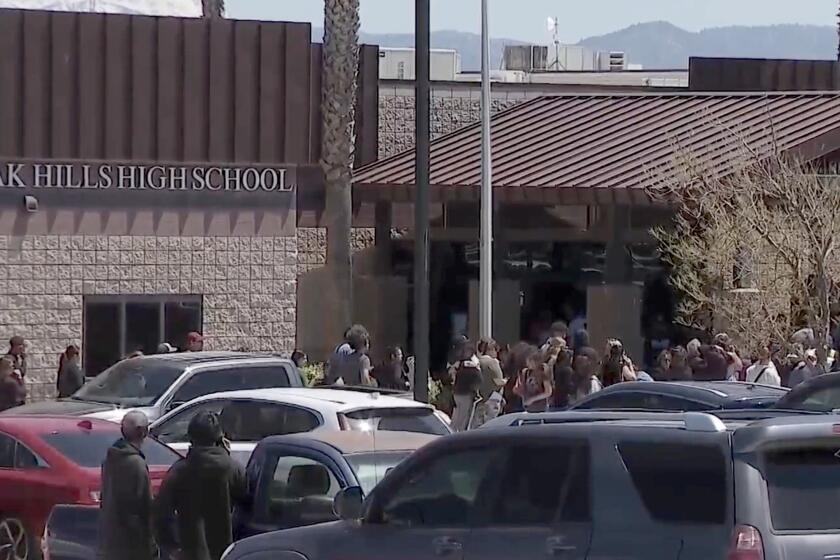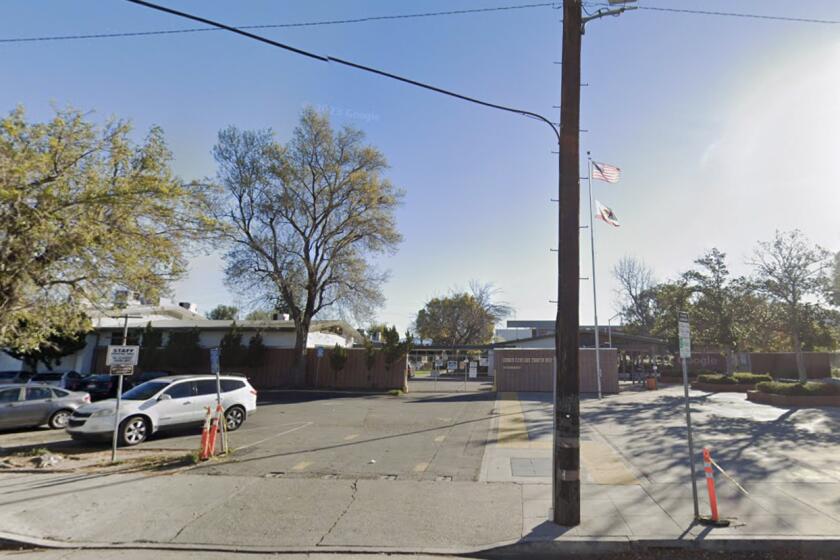Cal State’s extended ed programs may not follow policy, audit says

California State University officials were warned Tuesday that course scheduling decisions on many campuses may be forcing students to take high-cost extension classes to complete their degrees, which would violate state law.
A report by the state auditor criticized aspects of the system’s two-tier education plan, which provides state-funded courses during the academic year and the same classes at a higher cost typically during winter and summer sessions. Those courses are paid for by students or employers.
Such classes are intended to provide extra access, especially during recent years when state budget cuts forced Cal State’s 23 campuses to turn away thousands of eligible students. Per-unit fees are based on the cost of instruction.
However, state law prohibits campuses from “supplanting” or replacing regular state-subsidized classes with extension courses, so that students are not unfairly charged higher tuition for required academic work.
But in a review of extended education programs at the Long Beach, San Jose and Sacramento campuses from 2007 to 2012, auditors identified 26 instances in which a course needed for degree completion was only offered through the extension program. Additionally, it found more than 900 instances in which state-funded courses were reduced while high-cost versions of the courses increased.
Long Beach, for example, in 2008-09 offered a state-funded French 314 course during the spring semester but the next year provided the same course only as an extension class during the winter session, even though it continued to be required for a bachelor’s degree in French.
In another case, San Jose offered 129 sections of English 1B in 2009-10 and no extension version of the class. The following year, however, the campus provided 114 state-funded sections and four extension sections.
Auditors, however, could not be certain that state education codes were violated, mainly because neither the Legislature nor Cal State have defined the word “supplant,” nor is there explicit guidance on how to measure course replacement or its impact on students.
“Until the Legislature and CSU define supplanting and direct the campuses to establish a method for tracking and evaluating (it) … any instances of supplanting will remain unclear and may result in campuses charging students additional fees to take extended education courses,” Auditor Elaine M. Howle wrote.
The report also found that campuses frequently failed to follow policy when setting fees for extension courses, that revenues for the extension courses exceeded expenditures and that two of the campuses did not follow policy by notifying the chancellor’s office before converting a state-funded degree program to an extension program.
In 2009, for instance, Long Beach converted its master’s degree in dance to an extension program without notification, auditors said.
The audit recommends that the Legislature and chancellor’s office work to clarify state codes and provide tighter oversight.
Cal State officials said that they agreed with the majority of the findings and will work to clear up language.
“A big part of the reason this happened is budget cuts and campuses trying to preserve critical resources for the fall and spring semesters,” said spokesman Mike Uhlenkamp.
“We’re going to work with the Legislature on defining what technically supplanting means and we agree we need to tighten up some of the fee policies and that will be done through an executive order,” he said. “We’ll work with the campuses to determine how to effectively implement the recommendations.”
ALSO:
Lawyers challenge care for condemned
State alters policy on prison use of force
Tape shows mentally ill prisoners forced from cells
Twitter: @CarlaRiveraLat
More to Read
Start your day right
Sign up for Essential California for news, features and recommendations from the L.A. Times and beyond in your inbox six days a week.
You may occasionally receive promotional content from the Los Angeles Times.







